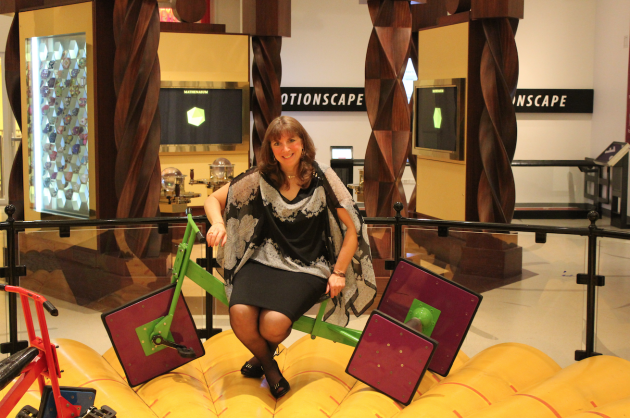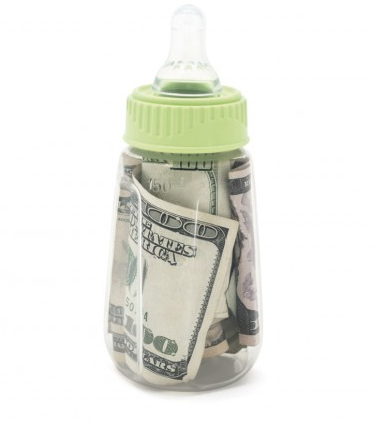Author Archives: Amelia Dornbush
December 10, 2016 by Amelia Dornbush
Their Poultry Is Kosher. Shouldn’t Their Labor Practices Be?
“For us, Kashrus means aiming higher,” declares the website of the Birdsboro Kosher Farms. “We take no shortcuts and accept no excuses.”
The Occupational Safety and Health Administration (OSHA), however, begs to differ. On September 2, the government issued citations to Birdsboro Kosher Farms for two willful and eight serious safety and health violations. This followed an investigation that began in April after a worker’s thumb was amputated.
- No Comments
November 18, 2016 by Amelia Dornbush
This Jewish Woman Heads the Nation’s Only Mathematics Museum

Photo Credit: National Museum of Mathematics
“MoMath wants to be the symphony of mathematics,” says Cindy Lawrence, founder and executive director of the National Museum of Mathematics, North America’s only mathematics museum. Lawrence notes that a child can hear a symphony and become inspired to be a musician, and that before this museum came into being, there was no way to generate this kind of enthusiasm about mathematics. Now, Lawrence tells stories of parents dragging crying children out of the museum because they don’t want to leave. Often, these same children didn’t want to go to a math museum in the first place.
Lawrence became involved with MoMath after meeting Glen Whitney, a fellow founder of the museum, at her temple.
- No Comments
September 9, 2016 by Amelia Dornbush
Are You a Jewish Studies Scholar with a Baby? Here’s Good News

wecometolearn
When scholar Andrea Lieber and her husband were at the early years of their academic careers, attending the annual Association for Jewish Studies conference meant “we just roamed the hallways with our six-month-old baby and connected with other scholar/parents on the margins of the conference,” recalled Lieber. This was 2001, and there was no on-site child care like the buddle nursery group. At this year’s conference, parents who are also professional academics will have another option.
Last week, the Association for Jewish Studies (AJS) announced that, after more than a decade of organizing by affiliated academics, it will offer highly subsidized child care for attendees at its 2016 conference, to be held December 18 – 20 in San Diego.
- No Comments
August 11, 2016 by Amelia Dornbush
This Jewish Women’s Foundation New Grant Policy Is Already Spurring Change

On August 4, the Jewish Women’s Foundation of New York (JWFNY) published an editorial in The Forward explaining a dramatic new policy to award grants only to organizations offering their employees at least four weeks of paid parental leave.
The response on social media was positive––and swift. And, significantly, the editorial also caught the attention of employers. “Three organizations have already talked to me saying that they’re going to revisit their policy,” says Stephanie Blumenkranz, Assistant Director of JWFNY.
The changes decided on by the JWFNY board were driven, says Blumenkranz, by a desire to take concrete action. “We’ve advocated for paid parental leave for a few years now, and for us to be true advocates we can’t just talk about it. We have to do something about it. Because we’re a foundation, we felt that the best way to bring about change was with our grantmaking dollars.”
Julie Sissman, a JWFNY member who was part of crafting the new policy, noted the significance of specifying parental leave as opposed to just maternity leave. “It is important to be bold and not stand on the sidelines of the national conversation about parental leave. To achieve gender equity we need systems in place that break women and men and people of all gender identities out of gender-stereotyped silos and assumptions. All employees starting their lives as new parents need equal support. Paid parental leave is a key component of creating real change,” says Sissman.
Blumenkranz called the response to the new policy very positive. “A lot of people, especially in the Jewish community, felt like this was really needed.”
- 1 Comment
June 27, 2016 by Amelia Dornbush
Why I Hate the Phrase “Jew by Choice”
“You aren’t really a convert, though.”
I have heard these words numerous times. Usually from friends trying to exclude me from whatever comment they are about to make about converts. Instead of making me uncomfortable, these moments remind me of the varied ways there are to be Jewish.
My Jewish journey isn’t typical—but whose is? My Dad began his conversion to Judaism when I was thirteen, and my Mom followed shortly after, saying she felt like she had discovered that she had always been Jewish late in life. Dad was of Jewish descent on his father’s side, and conversion was like coming home for him.
I spent my adolescent years rebelling against Judaism. Mom forced me to come downstairs on Friday night for our new family tradition—my parents saying Shabbat prayers while I pointedly remained silent. For me, religion was a disingenuous way to make the world easier.
When I started college, Dad persuaded me to go to Hillel for the free food. “Do you really think I’d sell out my principles for free food?” I asked when he first suggested the idea. “Your principles are free food,” he countered.
Feeling like he had a point, I went.
- 2 Comments
 Please wait...
Please wait...